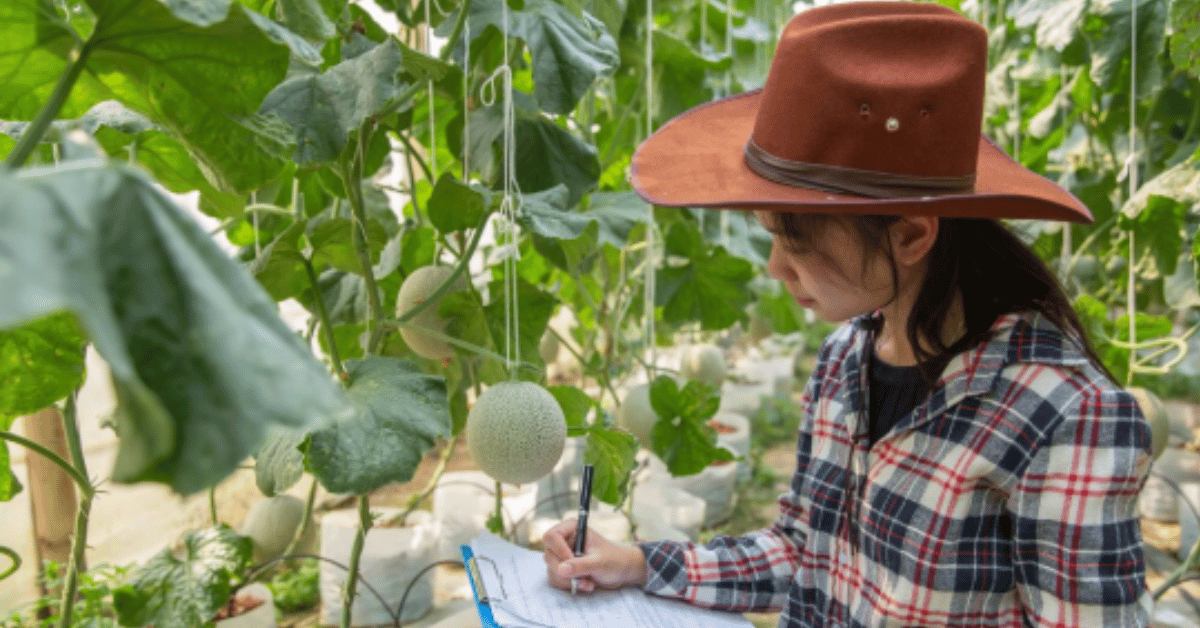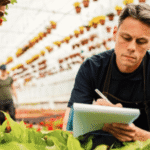The term landbouw economisch instituut, often translated as “Agricultural Economic Institute,” represents more than just an organization devoted to farming research. It symbolizes the systematic study of how agriculture interacts with economics, policy, and sustainability, influencing decisions that shape the lives of farmers, consumers, and governments alike. For a reader searching to understand this concept, the essence lies in recognizing its role: bridging agricultural practice with economic theory to guide sustainable food production, trade, and rural development. Institutions bearing this name or function exist to measure agricultural trends, forecast markets, and recommend strategies that help societies feed themselves while maintaining balance with nature.
In today’s globalized era, landbouw economisch instituut is not merely historical; it is an evolving idea adapting to the climate crisis, shifting trade patterns, and technological innovation. From data on crop yields to insights about global supply chains, such institutes serve as intellectual backbones of national food security. They help policymakers anticipate risks, whether caused by geopolitical shifts or environmental pressures, and design solutions based on evidence rather than speculation. In essence, they transform raw agricultural realities into coherent strategies for growth and resilience.
As global agriculture faces challenges ranging from soil depletion to digital disruption, the relevance of a landbouw economisch instituut becomes clearer. It represents a convergence point for farmers, economists, researchers, and governments—a place where science meets practice. This article explores its role, historical context, functions, and future relevance in detail, while connecting broader themes of sustainability and innovation. To fully grasp why it matters, one must journey through its background, its modern applications, and the ways it continues to shape global food systems.
Historical Background of Landbouw Economisch Instituut
Agriculture has always been deeply tied to economics, long before the term landbouw economisch instituut emerged. In early European societies, agricultural surpluses determined the rise of markets and taxation systems. By the 20th century, governments began to recognize that farming could no longer be left entirely to natural forces and individual decisions. The volatility of weather, the unpredictability of prices, and the growing demands of populations required structured study.
This recognition led to the founding of agricultural economic institutes, especially in countries like the Netherlands, where farming played a central role in national prosperity. These institutes were tasked with analyzing market trends, studying production methods, and guiding government policy on subsidies, trade, and rural infrastructure. They became repositories of knowledge and data, where researchers could identify patterns and provide recommendations.
The historical role of these institutes was not merely academic. They directly influenced how nations managed food crises, improved yields, and responded to international competition. By linking farmers’ daily practices with broader economic principles, they bridged two worlds that often seemed disconnected.
Core Functions of a Landbouw Economisch Instituut
A landbouw economisch instituut typically operates with a multifaceted mission. Its responsibilities extend beyond pure economics, encompassing research, education, and advisory roles that support the entire agricultural ecosystem.
- Market Research: Collecting and analyzing data on agricultural prices, supply, and demand to predict trends.
- Policy Guidance: Advising governments on subsidies, tariffs, and rural development initiatives.
- Sustainability Studies: Evaluating the environmental impact of farming and recommending eco-friendly practices.
- Technological Assessment: Exploring how innovation, from irrigation systems to AI tools, affects productivity and labor.
- Rural Development Support: Offering frameworks to strengthen rural economies through diversification and infrastructure.
These functions ensure that decisions about agriculture are based not on guesswork but on evidence-driven insights. As one expert once remarked, “An economy that ignores its farmers is an economy built on fragile soil.”
Economic Importance of Agricultural Institutes
Agriculture is both a livelihood and a business. For many countries, it contributes a significant portion of GDP, exports, and employment. The landbouw economisch instituut provides clarity on how agriculture sustains economies and where vulnerabilities lie.
For instance, small fluctuations in wheat or dairy markets can ripple across entire economies. Institutes help forecast these movements, allowing policymakers to stabilize markets through strategic reserves or subsidy adjustments. They also study international trade agreements, ensuring that local farmers are not disadvantaged by global competition.
The economic importance of these institutes extends to farmers themselves. By providing market insights, they empower farmers to make better decisions about what to plant, when to sell, and how to invest. In many ways, they act as a compass, guiding agriculture through unpredictable economic landscapes.
The Role in Policy and Governance
Agricultural policies are rarely simple. They must balance consumer needs, farmer livelihoods, environmental sustainability, and trade commitments. The landbouw economisch instituut plays a critical advisory role, helping governments craft policies that achieve equilibrium among these competing demands.
One significant contribution lies in subsidy design. While subsidies aim to protect farmers, poorly designed systems can distort markets or harm the environment. Institutes provide models that show how different subsidy schemes impact production and trade. Similarly, they guide governments on food security strategies, ensuring that nations maintain reserves to handle crises like pandemics or conflicts.
The institute also informs international negotiations. In trade talks, data from agricultural economists can mean the difference between advantageous agreements and harmful concessions. This illustrates why such institutes are indispensable to national governance.
Table 1: Functions of a Landbouw Economisch Instituut
| Function | Description | Impact on Agriculture |
|---|---|---|
| Market Research | Analyzing supply, demand, and pricing trends | Helps stabilize farmer decisions |
| Policy Guidance | Advising governments on tariffs, subsidies, and rural planning | Shapes national food strategies |
| Sustainability Studies | Researching eco-friendly farming and climate impacts | Promotes long-term resilience |
| Technological Assessment | Evaluating effects of innovations like AI and automation | Drives productivity and modernization |
| Rural Development | Supporting diversification and infrastructure in rural regions | Strengthens rural economies |
The Intersection of Sustainability and Economics
The future of farming depends on sustainability, and the landbouw economisch instituut has become a leader in aligning environmental goals with economic strategies. Agricultural sustainability involves reducing carbon emissions, conserving water, protecting soil, and promoting biodiversity. But these goals often conflict with short-term profitability.
Institutes bridge this gap by calculating the long-term economic value of sustainability. For example, while switching to organic methods may initially reduce yields, it can create premium markets and improve soil fertility. Similarly, investments in renewable energy on farms may seem costly upfront, but over time they reduce expenses and carbon footprints.
One researcher once noted, “Sustainability without economics is wishful thinking; economics without sustainability is self-destruction.” This balance is exactly what a landbouw economisch instituut strives to achieve.
Technological Innovations and Digital Agriculture
Modern agriculture is being reshaped by technology, from drones monitoring fields to AI predicting weather patterns. The landbouw economisch instituut plays a vital role in evaluating and guiding these technologies. It studies how automation impacts labor, how blockchain can improve supply chain transparency, and how precision farming enhances efficiency.
Beyond evaluation, institutes help small farmers adapt. While large corporations can easily adopt high-tech methods, smaller farmers often struggle. Economic studies reveal how cooperative models, shared equipment, or government incentives can make technology accessible.
The digital revolution in agriculture cannot succeed without careful economic planning, making the institute’s role indispensable in ensuring that innovation benefits everyone, not just the privileged few.
Table 2: Challenges Addressed by Landbouw Economisch Instituut
| Challenge | Economic Approach | Outcome Achieved |
|---|---|---|
| Market Volatility | Price forecasting and strategic reserves | Stable food supply |
| Climate Change | Valuing sustainable practices economically | Reduced environmental degradation |
| Global Trade Pressures | Negotiation models and tariff impact assessments | Fairer international agreements |
| Technology Accessibility | Cooperative models and incentive frameworks | Inclusive modernization |
| Food Security Crises | Data-driven emergency planning | Resilient national reserves |
Global Relevance of Agricultural Economic Institutes
Though the concept originates in Europe, the model of a landbouw economisch instituut is globally relevant. From Africa to Asia, agricultural economies depend on reliable research to navigate uncertainties. In developing nations, institutes focus on food security and poverty alleviation. In developed economies, they address sustainability, export competitiveness, and consumer health.
The universality of agricultural challenges—climate change, resource scarcity, and market integration—means that institutes worldwide share a common mission. They may differ in structure, but their goals align: to safeguard food systems through economic intelligence.
The Future Outlook
Looking ahead, the landbouw economisch instituut will likely expand its role beyond traditional economics. It will integrate big data analytics, climate modeling, and interdisciplinary research. Collaboration with global organizations like the FAO and World Bank will intensify, as agricultural challenges increasingly transcend borders.
The emphasis will also shift toward resilience. Rather than merely responding to crises, institutes will anticipate shocks and design adaptive systems. This proactive approach may redefine agricultural economics as a discipline that is not only analytical but also deeply strategic.
Conclusion
The landbouw economisch instituut is more than a research body; it is a cornerstone of modern agriculture. It stands at the intersection of economics, sustainability, policy, and technology, guiding societies through one of humanity’s most vital challenges: feeding a growing population responsibly. By analyzing trends, advising policymakers, and supporting farmers, it ensures that agriculture remains both economically viable and environmentally sustainable.
In a world where food systems are increasingly strained, its role becomes indispensable. As one policy analyst remarked, “The institute is not simply about farming; it is about the future of civilization itself.” From local farmers deciding what to plant to governments shaping international trade policies, the influence of the landbouw economisch instituut is profound and far-reaching.
FAQs
Q1: What is the primary role of a landbouw economisch instituut?
A landbouw economisch instituut primarily studies agriculture’s economic dimensions, providing research, market insights, and policy guidance to strengthen food systems.
Q2: How does a landbouw economisch instituut support farmers?
It supports farmers by offering price forecasts, sustainability advice, and strategies to adopt technology while remaining economically competitive.
Q3: Why is sustainability research important for agricultural economics?
Sustainability research ensures farming practices balance profitability with long-term ecological health, securing resources for future generations.
Q4: What challenges do landbouw economisch institutes address in global agriculture?
They address climate change, trade pressures, food security crises, and technological accessibility, helping nations design resilient agricultural systems.
Q5: How does technology influence the work of landbouw economisch institutes?
Technology provides new data sources, from drones to AI, which institutes analyze to improve efficiency, equity, and global competitiveness.











